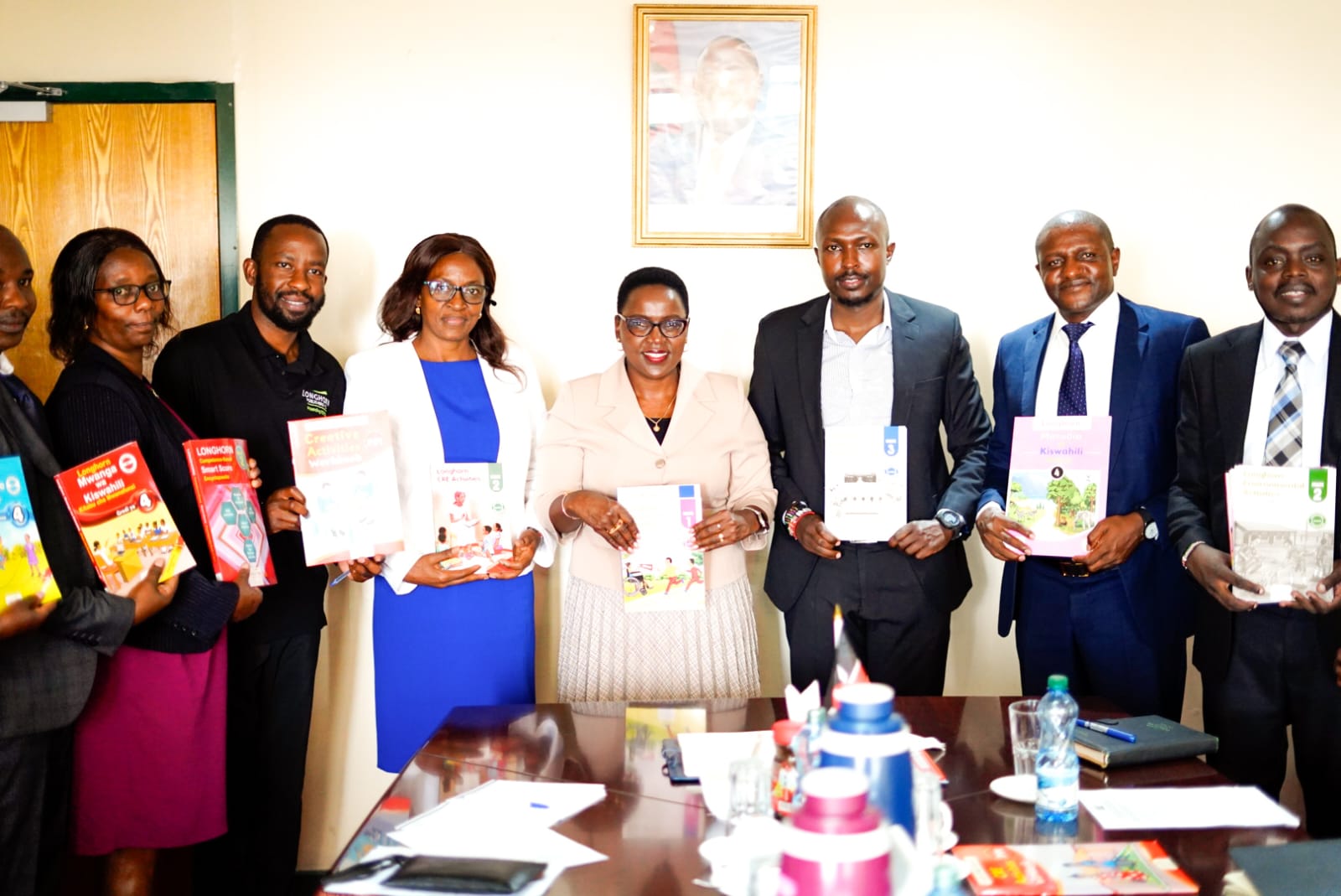BOOST FOR FORMAL EDUCATION IN CORRECTIONAL FACILITIES AS PUBLISHER DONATE BOOKS
By Nicholas Kigondu
State Department for Correctional Services Principal Secretary Dr. Salome Beacco says the government remains committed to improve education standards within correctional settings through the adoption of global best practices.
Speaking while receiving a donation of books from Longhorn publishers worth half a million shillings, the PS said the government has developed concrete programmes that prioritize rehabilitation, reformation and re-integration of offenders.
“One of the key initiatives within the state department has been the registration of prison schools as public schools. This move has granted individuals under our care equal access to quality education, aligning them with the national curriculum.” Noted the PS.
This even as she pledged to have the donated books reach their intended recipients urging stakeholders in the education sector to support ongoing reforms within the correctional service.
“Let us do this for the common good. How can each one of us leave a footprint of legacy to our country? Can we be the agents of change in the lives of the offenders?” she posed.
While pledging to further support the state department in its education agenda, Longhorn Publishers chief operations officer Michael Mwaura lauded the state department for being intentional in its support for formal education within correctional facilities.
“We want to see our company having an impact in the society by supporting education initiatives which have proven to be impactful among those in prisons,” he said.
At least one thousand books, comprising of revision and course books, were donated during the event and will be distributed across all education centres within correctional facilities in the country.
Education within correctional facilities has recorded notable gains in the recent past with the leadership at the state department prioritizing its development.
One of the key initiatives has been the registration of prison schools as public schools, a move that has granted individuals within correctional settings equal access while young offenders in borstal institutions are now empowered to pursue pure sciences, broadening their academic horizons and opening up new opportunities for future careers.
There has also been significant improvement in the provision of instructional materials and stationery while rigorous monitoring of the Kenya National Examinations Council (KNEC) exams has ensured fairness and transparency with the impact of the initiatives evident in the successful transition of offenders from primary education to secondary, colleges, Technical and Vocational Education as well as Training (TVET) institutions and universities.

